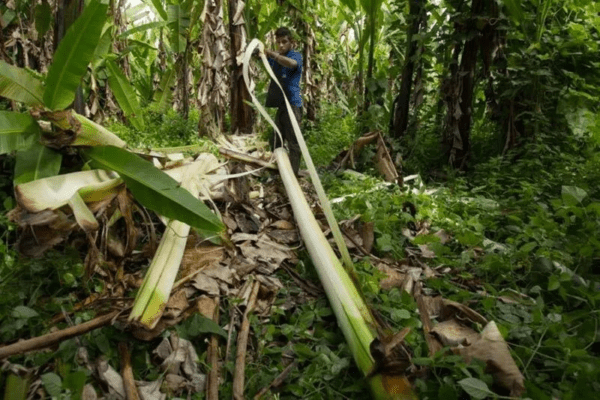
HAVANA TIMES – Victims of contemporary forms of slavery in the abaca plantations in Ecuador should receive legal recourse and reparations in ongoing lawsuits, human rights experts from the United Nations system stated in this Swiss city.
The lawsuits “are a unique opportunity for Ecuador to deliver justice to the victims,” and the company Furukawa Plantations C.A. “must be held accountable for the human rights abuses committed, and adequate, effective, and prompt reparations must be granted to the victims,” said the rapporteurs.
Additionally, “human rights defenders must be protected instead of being intimidated,” noted the experts’ statement.
They include members of the Working Group on Business and Human Rights: Robert McCorquodale (president rapporteur), Fernanda Hopenhaym, Pichamon Yeophantong, Damilola Olawuyi, and Elzbieta Karska, who act as independent experts in the United Nations Human Rights Council.
In addition to them, the statement is signed by Tomoya Obokata, Special Rapporteur on contemporary forms of slavery; Farida Shaheed, Rapporteur on the right to education; Michael Fakhri, Rapporteur on the right to food; and Pedro Arrojo-Agudo, Rapporteur on the human rights to safe drinking water and sanitation.
They believe “it is encouraging to see that Furukawa Plantations C.A. is being held accountable in two groundbreaking lawsuits over allegations of servitude and forced labor.”
“More than 330 workers from the provinces of Esmeraldas, Santo Domingo de los Tsáchilas, and Los Rios (northwestern Ecuador) have reportedly been subjected to forced labor, servitude, and other severe human rights abuses in the context of abaca production for over 60 years,” the experts noted.
Abaca (Musa textilis), from the banana family, is a plant native to the Philippines that is harvested for its fiber, used in the manufacture of banknotes and other papers, filters, ropes, hats, nets, screens, and as a substitute for fiberglass in automotive industry applications.
After the Philippines, Ecuador is the world’s second-largest producer, exporting around 10,000 tons annually, mainly cultivated on 23 plantations covering 2,300 hectares owned by Furukawa, a Japanese capital company established in the South American country 60 years ago.
For years, workers supported by social and human rights organizations have filed lawsuits against the company, arguing that generations worked in Furukawa camps in conditions similar to slavery.
Hundreds of working families endured conditions of minimal wages, exploitation, lack of access to basic services such as electricity or clean water, education, healthcare —a strip of the fiber can be as sharp as a razor— sanitation, and other violations of their rights.
Many community members, including children, suffer from chronic health problems, partly due to the dust released by abaca fiber when it dries, which penetrates their airways and lungs.
UN human rights experts recalled that in a ruling on January 15, 2021, an Ecuadorian first-instance court recognized for the first time that working conditions at Furukawa Plantations S.A. constituted a violation of several legally established rights.
These include the right to equality, non-discrimination, the prohibition of servitude, the right to health care, housing, and education, and it stated that both the Ecuadorian State and Furukawa Plantations were responsible.
The court ordered them to implement reparations measures. On appeal, the Provincial Court of Justice of the Santo Domingo de los Tsáchilas region confirmed the company’s responsibility but exonerated the Ecuadorian State.
A year later, when the Constitutional Court of Ecuador decided to review the case, Furukawa Plantations workers reportedly continued to face harassment and retaliation from the company for seeking justice, as well as living in extremely precarious conditions, according to the experts.
On April 9, the Constitutional Court began a review hearing on the alleged omission of the Ecuadorian State, the direct responsibility of the company, and the duty to pay reparations. Its verdict is expected in the coming weeks.
Simultaneously, it is expected that the Criminal Court of Santo Domingo will decide on June 20, 2024, whether Furukawa Plantations should face criminal sanctions based on the human rights abuses it allegedly committed, including human trafficking for labor exploitation.
The UN rapporteurs also called on Ecuador to be more effective in preventing contemporary forms of slavery, strengthening its laws and standards, and ensuring that regular and effective labor inspections are conducted, especially in high-risk economic groups.
Finally, they said, “We are impressed by the courage and resilience of the community, human rights defenders, and civil society activists who have fought for their rights despite alleged intimidation, threats, and blackmail.”
Read more feature reports here on Havana Times.


